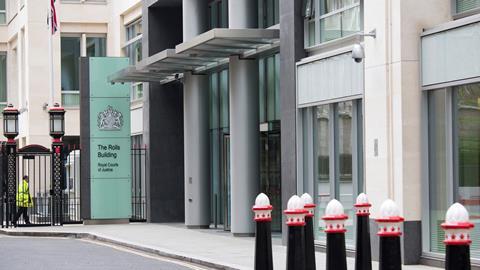Nigerian claimants bringing an action against London firm Leigh Day over a settlement in a £55 million pollution case have no authority to do so, the High Court has ruled.
Andrew Twigger KC, sitting as a deputy judge of the High Court, dismissed the claims over disbursements totalling £6m from a settlement fund in the case against Shell.
Leigh Day, which had denied all allegations against it, acted for residents of the Niger Delta in a case against the company following oil spills in 2008 and 2009. The claim was settled in 2014. Shell agreed to pay £55m in damages and a remediation programme. The settlement was divided with £35m for claims by individual citizens and £20m for the claim on behalf of the community. The firm argued it had followed the instructions of its clients.
The judgment in Kagbara and others v Leigh Day Solicitors said that it would be ‘unusual’ to allege that a firm owed a duty of care to a wider group of individuals than its clients. The judge said claims brought by the claimants ‘can only be brought against Leigh Day by, or on behalf of, those individuals who actually instructed them in relation to the community claim against [Shell]. It is only those clients who have the relevant causes of action’.
He added: ‘I understand it to be common ground that none of the eight claimants is, or was at any time, a member of the [council of chiefs and elders], or involved in any way in giving instructions to Leigh Day in relation to the community claim against [Shell].’
Read more
The judge said he was not satisfied that any validly constituted meeting of the GA or the council of chiefs and elders had ‘ever resolved to bestow such authority’ on the claimants or that there was any principle in Nigerian law which precluded the council of chiefs and elders from revoking any authority that was previously given to the claimants.
Dismissing the claims, the judge said: ‘I have concluded that there is no principle in either Nigerian or English law which prevents Leigh Day from challenging the eight claimants’ authority or locus to bring the claims made in this action. The answer to the preliminary issue as to whether the eight claimants have authority to advance the claims made in the action is “no”.’
Leigh Day partner Dan Leader said the judgment meant Leigh Day could ‘now focus’ on the clean-up claim which is listed for trial in May next year. ‘We hope this judgment will bring an end to these unfounded claims against Leigh Day,’ he said.
This article is now closed for comment.




























7 Readers' comments